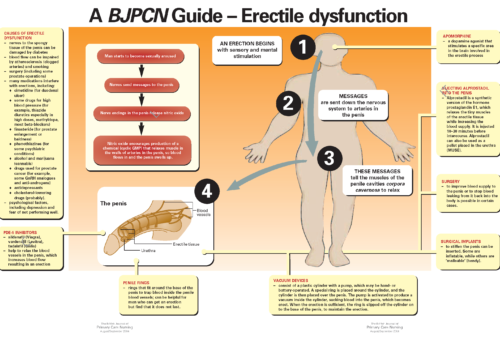Treatment with statins is undoubtedly making a major contribution to reducing high-risk patients’ chance of a heart attack or another coronary event. However, their risk remains high, since over half of patients included in statin clinical trials suffered a further coronary event within five years. There is growing evidence that we need to move beyond simply lowering low-density lipoprotein cholesterol (LDL-C) and optimise the whole lipid profile.
Non-statin strategies for modifying lipids
Raised cholesterol is the commonest risk factor for CHD. Reducing cholesterol can be an effective way to help lower a patient’s risk of heart disease, particularly when cholesterol levels are already high. Dr Rubin Minhas looks at how to help patients to lower their cholesterol levels without drug treatment. He will discuss other lipid modifying drugs in future issues.
Disposing of used syringes and other sharp clinical waste
More and more is being expected of practices in improving the management of diabetes – with initiatives such as the National Service Framework (NSF) for Diabetes and NICE guidance setting increasingly ambitious targets. The National Diabetes Support Team (NDST) has been set up to help support local services throughout the NHS and in meeting these challenges. In this issue, they share latest advice for practices and patients on disposing of used syringes and other sharps.
Diabetes care: maintaining glycaemic control during fasting for Ramadan
Fasting during Ramadan – lasting from 15th October to 12th November this year – is one of the five pillars of Islam. The experience of fasting is intended to teach Muslims self-discipline and self-restraint, and to help them understand a little of the plight of the less privileged. But what are the implications of fasting for patients with type 2 diabetes?
Beta blockers
Beta blockers are well established drugs in the treatment of cardiovascular disease, after first being introduced 20 years ago. Today, they are used to treat patients with a range of cardiovascular conditions – hypertension, myocardial infarction, angina, heart failure and abnormal heart rhythms (arrhythmias). There is good evidence for beneficial effects with beta blockers and their use is recommended in many guidelines, including the recent British Hypertension Society guidelines. Prescribing of beta blockers in patients with heart disease is further encouraged as a ‘quality marker’ in the new GMS contract.
Disease Focus on… Sleep Apnoea
Sleep apnoea is far more than just snoring associated with brief periods of suspended breathing while asleep. It is an important risk factor for cardiovascular disease and diabetes, so it is well worth asking patients whether they suffer breathing problems during the night and then following up those who do. More than one-third of people with sleep apnoea have hypertension, so measuring blood pressure is important in assessing risk factors and then establishing appropriate preventive treatment.
New British Hypertension Society guidelines tighten cardiovascular risk management
New British Hypertension Society (BHS) guidelines on hypertension focus on cardiovascular risk rather than risk of coronary heart disease, in order to improve the prevention of stroke as well as heart disease.
Maintaining motivation: the long haul of weight loss
There is no doubt about it, achieving and maintaining weight loss long term is a great challenge. Primary care nurses have a significant role in motivating patients to adopt a healthy lifestyle and to persevere with weight management programmes. In the last issue of BJPCN we looked at how to raise the tricky subject of obesity with patients. This time, we continue the issue by exploring how practice nurses ensure a positive working relationship with their patients with weight problems and encourage them as they tackle the long-term issue of obesity.
Improving the primary care management of obesity
Over half of all adults in the UK are overweight, according to latest figures. The number of people who are obese has tripled over the last 20 years, and is still rising. But is weight management an issue for primary healthcare teams? There is clear evidence that it is – with obesity being directly related to increased risk of death and a range of chronic diseases. Obesity reduces life expectancy, on average, by nine years. At long last there is some encouragement for general practices to optimise detection and management of obesity. The new General Medical Services (GMS) contract includes 208 from a total of 1050 points available in the Quality and Outcomes Framework that are affected by weight loss, offering a major financial incentive to general practices to encourage patients to lose weight.
Erectile dysfunction (ED) is a common condition that not only causes distress to a couple, but also indicates the likely presence in the man of cardiovascular and other diseases. By diagnosing and treating ED, nurses can therefore help to restore the coup
Improving the management of diabetic foot conditions
Foot complications are very common in patients with diabetes. At least one in six diabetics develop foot ulcers at some point in their lives. This article reviews why foot complications occur in diabetes, how you can detect foot problems early, and treatment and prevention strategies. The National Service Framework for Diabetes suggests that targeted foot care for people at high risk could save hundreds of amputations a year. By detecting complications earlier, we can make a real difference to patients’ lives, reducing morbidity, improving quality of life and even saving limbs.





















